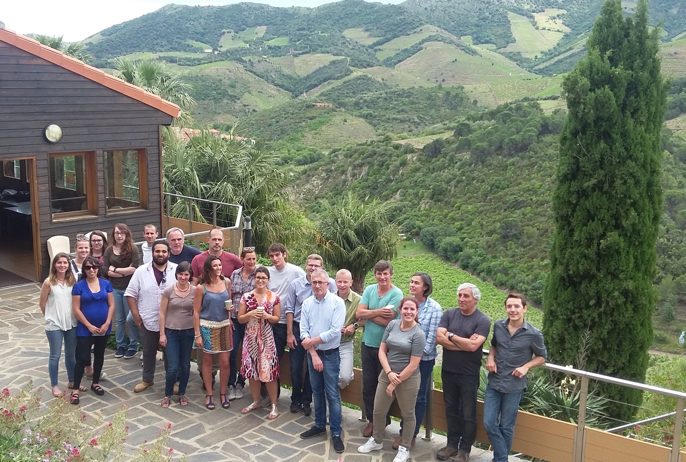 2016 SCAR Fellow Lavenia Ratnarajah explored the role of baleen whales in the microbial food web using experiments carried out in sub-Antarctic waters. Ms Ratnarajah was a Post-Doctoral researcher at the Antarctic Climate and Ecosystems Cooperative Research Centre in Tasmania, Australia and travelled to work with Dr Ingrid Obernosterer at the Laboratoire d’Océanographic Microbienne, Banyuls-sur-mer, France.
2016 SCAR Fellow Lavenia Ratnarajah explored the role of baleen whales in the microbial food web using experiments carried out in sub-Antarctic waters. Ms Ratnarajah was a Post-Doctoral researcher at the Antarctic Climate and Ecosystems Cooperative Research Centre in Tasmania, Australia and travelled to work with Dr Ingrid Obernosterer at the Laboratoire d’Océanographic Microbienne, Banyuls-sur-mer, France.
The Fellowship allowed Lavenia to learn new analysis techniques which were applied to the samples from an incubation experiment in the sub-Antarctic waters around Heard Island, including microbial community analysis. The preliminary results suggest that the addition of whale faecal material stimulated the heterotrophic community but not the autotrophic community by providing it with a pulse of labile organic carbon. Further analysis of the combination of iron and organic carbon data will be used to help explain these results. Lavenia also hopes to extend the work to be able to use the iron and organic carbon data gathered from the study, and other studies, to develop a model looking at the interaction between phytoplankton and heterotrophic bacteria.
Lavenia reflected “The Fellowship has allowed me to broaden my skills and network which will assist me in creating bigger and better collaborations in the future. Although I didn’t have the expertise in quantifying microbial community abundance, it was something I was very interested in and the fellowship has given me the opportunity to learn these new skills.”
Lavenia was also a speaker, together with another 2016 SCAR Fellow – Jilda Caccavo, for the recent APECS webinar “How to get involved: Insights from EPB, IASC and SCAR”, which is archived at the APECS website.
The full report is available on the Fellows webpages together with the full list of SCAR Fellows and available Reports.
The SCAR Fellowship Programme is designed to encourage the active involvement of early career scientists and engineers in Antarctic scientific research, and to build new connections and further strengthen international capacity and cooperation in Antarctic research. The work must be carried out in a research group of a SCAR member country different from that of the applicant’s origin and current residence.
